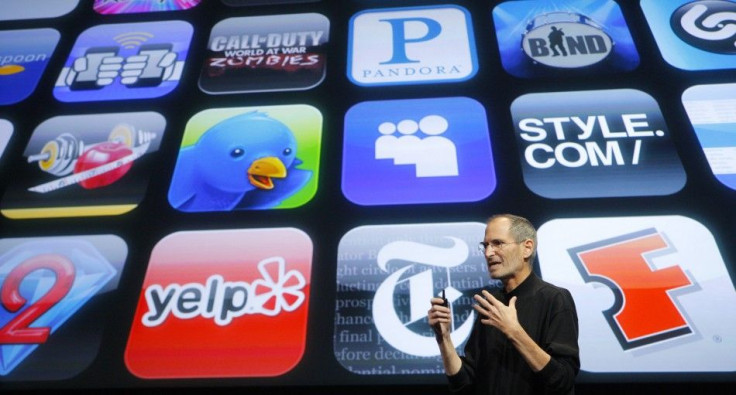Apple vs. Exxon Mobil: In Long Term, Who Wins?

The battle for the world's most valuable company has heated up between Apple and Exxon Mobil.
For a brief time on Tuesday, Steve Jobs' Apple company had the biggest market cap in the world, making it the most valuable company.
Apple's stock price eventually dropped a bit on Tuesday and Exxon regained its crown, though it was above Exxon during volatile early morning trading on Wednesday.
The two will likely trade spots back and forth, but the key is that it has created conversation as to which company will ultimately remain supreme as the world's most valuable publicly traded company.
The answer is Apple and there are many reasons why.
One is the amount of momentum Apple has going for it right now. Its iPhones and iPads are selling in record numbers, while also maintaining an incredible amount of hype around upcoming products.
The amount of hype around its upcoming phone, the iPhone 5, is absurd. Consumers are devouring new information on Apple products at an amazing rate, allowing for media to report day after day on the latest rumors and news.
Apple's also been successful at getting consumers to buy into its whole ecosystem. Trends show that consumers aren't just buying an iPhone or an iPad, instead they are also buying Mac computers and other Apple products.
The more products they buy, the more intertwined they become in the ecosystem, and thus the less likely it is for them to buy other companies' products. This has created a dynamic customer base that should serve to buy more and more Apple products as they are released.
This amount of success launched the Apple stock to $400 at various points over the last quarter, though it has slumped down to around $370 with the markets' recent woes. It has amassed over $75.2 billion in cash on hand, a massive number that allows the company a lot of freedom in pursuing products and companies to purchase.
Exxon, on the other hand, seems to be losing momentum. Prices for barrels of oil continue to drop, most recently below the $80 mark, limiting potential profits for the oil company.
It also faces market resistance from automaker companies building more and more fuel efficient cars. Some of the world's biggest automakers have made a push to putting hybrid and electric cars in the market, as governments like the United States have mandated better gas mileage for cars.
The United States would like to see automakers cars average 54.5 miles per gallon by 2025. This will push companies to build smaller, more fuel efficient cars, which doesn't help big oil companies like Exxon.
The Chevrolet Volt and Nissan Leaf have both seen some success and positive buzz in that market, which could encourage more and more companies to try move away from the gas-guzzling cars that dominated the early 2000s.
Apple does have its own share of hinders, most notably the health of Steve Jobs. Jobs has battled health issues since being diagnosed with pancreatic cancer in 2004, with each health concern greatly worrying major investors.
Jobs has had to take a few leave of absences since 2004, while each announcement causing a drop in the company's stock.
Due to Jobs' hands-on management nature, if he were to permanently leave the company, or unfortunately pass away, the company would likely see an initial significant drop in its stock price.
But as long as Apple can prove it's capable of developing quality products post-Jobs, his departure would only be a speed bump.
But that's largely hypothetical - and could be decades away from being a factor.
The important thing is looking at current growth, momentum, and cash on hand.
And Apple currently, and for the foreseeable future, holds the edge over Exxon in every category.
So who will win in the Apple-Exxon Mobil showdown?
Looks like Apple - in a landslide.
© Copyright IBTimes 2024. All rights reserved.











